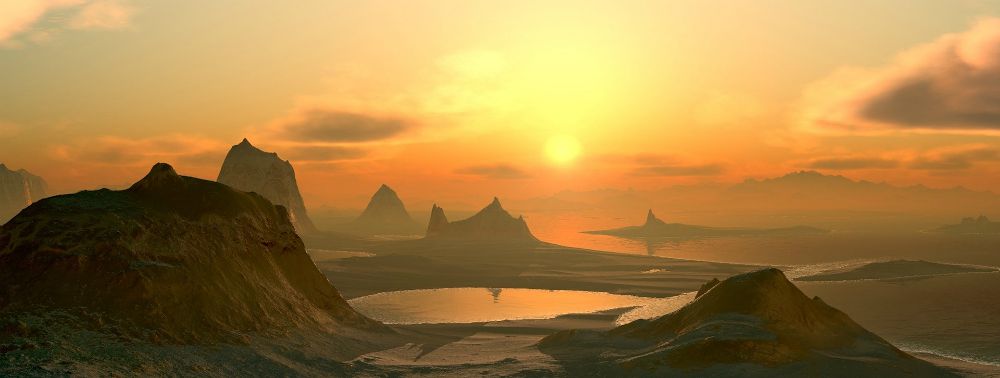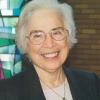
(Pixabay)
St. Augustine prayed: "Late have I loved you, O Beauty ever ancient, ever new, late have I loved you! You were within me, but I was outside, and it was there that I searched for you. In my un-loveliness I plunged into the lovely things which you created."
St. Augustine ― philosopher, theologian, Scripture scholar and bishop — in his earlier years disdained biblical texts for their rhetorical inelegance. Growing out of his early years as an arrogant "scamp," he became a towering figure of medieval philosophy, then theology. After living a little, he later considered the Christian scriptures and the call to love to be the touchstone of all truth.
To bolster my belief in the God who is indeed ever ancient and ever new, I look for hope in books like Finally Comes the Poet, where, in 1989, Walter Brueggemann wrote some still relevant words:
The main claims of Biblical texts do not concern our relationship with God, decisive as that is. Rather, the texts express two anticipations about human life restored. On the one hand, there is anticipation of the restoration of public life, safe cities, caring communities, and secure streets. On the other hand, there is anticipation of the restoration of personal and domestic well-being and joy, shared food, and delighted relationships. Both public and interpersonal life depend on the self-giving action of God who makes newness possible.
Biblical reflections on the mysteries of Jesus' human life, death, resurrection, ascension, and sending the Spirit frame our identity as apostolic religious women and men, along with our affiliates and companions on this journey called life. The two "restorations" mentioned by Brueggemann give us a rich arena for developing a conversation between Scripture and the human condition at this time in history.
An atmosphere of fear is being fanned by our political administration, and by friends and relatives. The not-in-my-backyard syndrome leads people to resist welcoming migrant workers and refugees who might take jobs, even those we do not seek for ourselves. "Refugees and foreigners are sure to incite violence." "The homeless leave their garbage for other citizens to clean up and cost taxpayers an astounding amount of money annually." "If floods, tornadoes, cyclones, hurricanes and freezing weather do not destroy us and our properties, nuclear weapons from Korea surely will." We hear comments like these every day.
The church does not fare any better. Though the Gospel message is being taught and preached, young people are pointing to ministers and church members as hypocrites who do not "walk their talk" effectively. Grandparents and parents who worked hard to finance Catholic, Protestant and Jewish educations, are left asking "What did I do wrong?" when their children and grandchildren refuse to go to any church or synagogue.
Could it be that God's time is now, that "our time is now"? Is it God's time and our new time to effect both public and personal restorations in civic, church and educational organizations, all pledged to serve the common good and make Mother Earth a more beautiful, safe and humane place to live?
I think every culture either dies or reinvents itself. I think we have got it wrong in wanting to be "America First" and to exclude other cultures that may be instrumental in teaching us that cooperation is life-giving, high on the scale of values, while competition is low.
Being No. 1 is everything! But it forces us into a separation from other human beings. This setting ourselves apart as better than, richer than, smarter than, violates our very DNA. Cooperation is built into every cell of our being, where each cell works in harmony to make us function as a whole. It's mystical! Not only is this scientific entanglement true for our one precious body, it is also true of all of us acting together. In fact, we can claim as biological or "chemical" kin every species and all that exists in the cosmos.
Advertisement
Most of us suffer when we watch suffering. But when we see a child act kindly toward an older person or a helpless animal, we feel heartened. When our fellow humans work to preserve Earth's bio-diverse systems, we are proud. When we remember the sisters and brothers who founded schools and hospitals to nourish human potential or bring health to the sick, we are grateful. We admire those who "pay it forward."
This kind of sacred human interiority creates a positive energetic field.
Think of communities in which group decision-making is the norm: women and men religious, Native American, Hispanic, suffragists and a number of Asian cultures. Recall individuals who turned their whole society around: Jesus, Gandhi, Martin Luther King Jr, the Dalai Lama, Desmond Tutu. Simply by listening to each other, many groups (e.g. alcoholics or over-eaters anonymous) heal each other.
Admittedly, we know other leaders who mesmerized enormous crowds, people like Adolph Hitler. What powerful negative energy moved human beings to take six million Jews to gas chambers? Scientists are demonstrating that the violence and anger of one person can affect other people.
So no matter how young or old we are, how vital or frail, we need a change of consciousness ― the Augustinian Gospel of love — then we need to take action.
Each person is significant. Desmond Tutu suggested that we look over the pieces of our world and determine one place where our talents could make a difference (God Has a Dream: A Vision of Hope for Our Time). Then together we could restore dysfunctional relationships in families, demand that religious and political institutions look at themselves critically, and shame business executives for the discrepancies between their incomes and those of the workers who earn their millions for them.
About 50 years ago Jesuit Fr. Pierre Teilhard de Chardin in "The Evolution of Chastity" wrote:
Some day, after mastering the winds, the waves, the tides and gravity, we shall harness for God, the energies of Love, and then, for the second time in the history of the world, we will have discovered fire.
The one energy we can all release in our every act and prayer is the fiery energy of love. The ever-ancient God who wove all that exists into an integrally connected masterpiece is also the ever-new God who sent an incarnate son to model for us the way we are to say "yes" to making the masterpiece even more beautiful. This new year is a perfect time to partner with God in "making all things new!"
[Cecilia A. Ranger is a Sister of the Holy Names of Jesus and Mary. She is now retired at Mary's Woods in Lake Oswego, Oregon, where she does some teaching, parish or personal retreats, and writing.]







